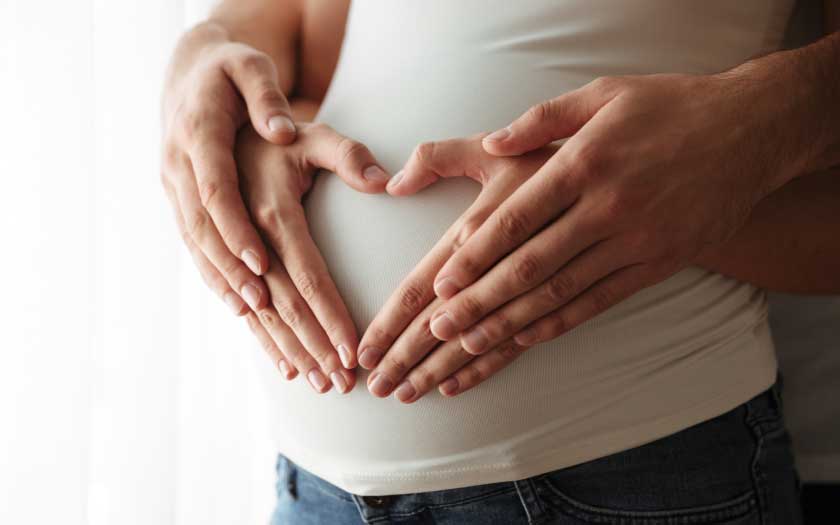If you’re thinking of getting pregnant, and you happen to feel that it’ll be fine to quit smoking and/or alcohol consumption as soon as you know you’ve conceived, we hope you realise that a baby’s brain and other important organs began to form and develop even before your earliest pregnancy symptoms show up! As so, irreversible damages would have been done, whereby your precious baby will have to pay for it.
Yes, smoking and alcohol consumption are the two most common lifestyle habits that cause grave danger to a pregnancy. They happen to be habits that are difficult to quit whereby thousands of women carry on smoking and/or drinking throughout their pregnancy. Let’s take a closer look at how they can affect your baby’s health.
Smoking: Why you need to quit now
Smoking during the early developmental stages of pregnancy presents an increased risk of ectopic pregnancy (when the embryo implants outside the uterus, usually in a fallopian tube) and placental complications. Placenta previa, in which the placenta attaches too low in the uterus and covers part or all of the internal opening of the cervix, is at least twice as common in smokers compared to nonsmokers. So is placental abruption, in which the placenta separates from the uterine wall before a woman’s delivery.
If you smoke, you are also more likely to have your water break before labor begins (called premature rupture of the membranes). When this situation occurs before 37 weeks of pregnancy, it often results in the birth of a premature baby.
It doesn’t necessarily end there. Even after being born, babies may continue to have health problems that were brought about by their mother’s prenatal smoking. One study revealed that babies of mothers who smoke throughout pregnancy may experience withdrawal-like symptoms (such as being jittery, sad, or difficult to soothe) similar to those seen in babies of mothers who use drugs.
Smoking may also increase a baby’s risk of various birth defects, including cleft lip, cleft palate, and clubfoot. Even more frightening are research results suggesting that babies whose mothers smoked during pregnancy are more likely to die of sudden infant death syndrome (SIDS) compared to those whose mothers quit way before conceiving or were never smokers, to begin with.
The dangers of secondhand smoke
It’s also important to stay smoke-free after your baby is born. Babies who are exposed to smoke suffer from more respiratory illnesses, asthma, and ear infections than do other babies. Infants whose mothers smoke are 38 percent more likely to be hospitalized for pneumonia during their first year of life compared to babies of nonsmoking mothers.
Quit smoking now – it’s never too late!
Quitting smoking a few months before getting pregnant will reap the best results in terms of your pregnancy health, but if you’re pregnant and are still smoking, quitting as early as possible can still help in preventing some health problems for your unborn baby. For instance, it will help lower the chances of your baby being born prematurely or being born underweight. It’s always worth the effort to quit smoking, for the sake of your baby.
It’s even better to quit smoking for good. A woman might think it is safe to start smoking again after her baby is born without realising that babies of mothers who smoke may breathe in secondhand tobacco smoke that can harm their health. Although quitting a habit like smoking can be quite difficult, the benefits are worth it, for not only will your baby be healthier and have a better chance of thriving, but you will too!
If you care enough to quit smoking, talk to your doctor today, and he/she will advise you on the best strategies.
Consuming alcohol during pregnancy
Alcohol consumption during pregnancy is, quite bluntly, disastrous to the unborn baby’s health. Consider the fact that alcohol is capable of making you drunk and intoxicated. When you consume an alcoholic drink, the alcohol passes through the placenta to your growing fetus. Because a developing baby’s body breaks down alcohol much more slowly than an adult’s, your baby’s blood alcohol level can rise much higher than your own and stay elevated longer. Imagine the damage it can cause, ranging from mental retardation to heart damage.
Alcohol consumption throughout pregnancy increases the risk of having a baby with fetal alcohol syndrome (FAS). FAS is capable of causing mental retardation and central nervous system problems, abnormal facial features, and, often, heart defects. Even if they’re lucky enough to be spared from any of the above, children of mothers who consumed alcohol during pregnancy may have problems with learning, memory, attention, speech, and hearing, as well as severe behavioral problems.
In addition, past studies have shown that women who consume three alcoholic drinks per week in their first trimester are more than twice as likely as non-drinkers to have a miscarriage.
Will an occasional drink or two be harmful?
Yes, indeed! One study at Wayne State University, Detroit, USA found that women who consumed as little as one drink a week during pregnancy were about three times as likely as non-drinkers to have a child diagnosed with behavioral problems such as aggression and difficulty in paying attention. A drink a week is not very much, but the fact remains that there may still be grave consequences.
If you have a problem with alcohol consumption and find it hard to quit, get help now. Talk to a doctor for advice on what to do.


